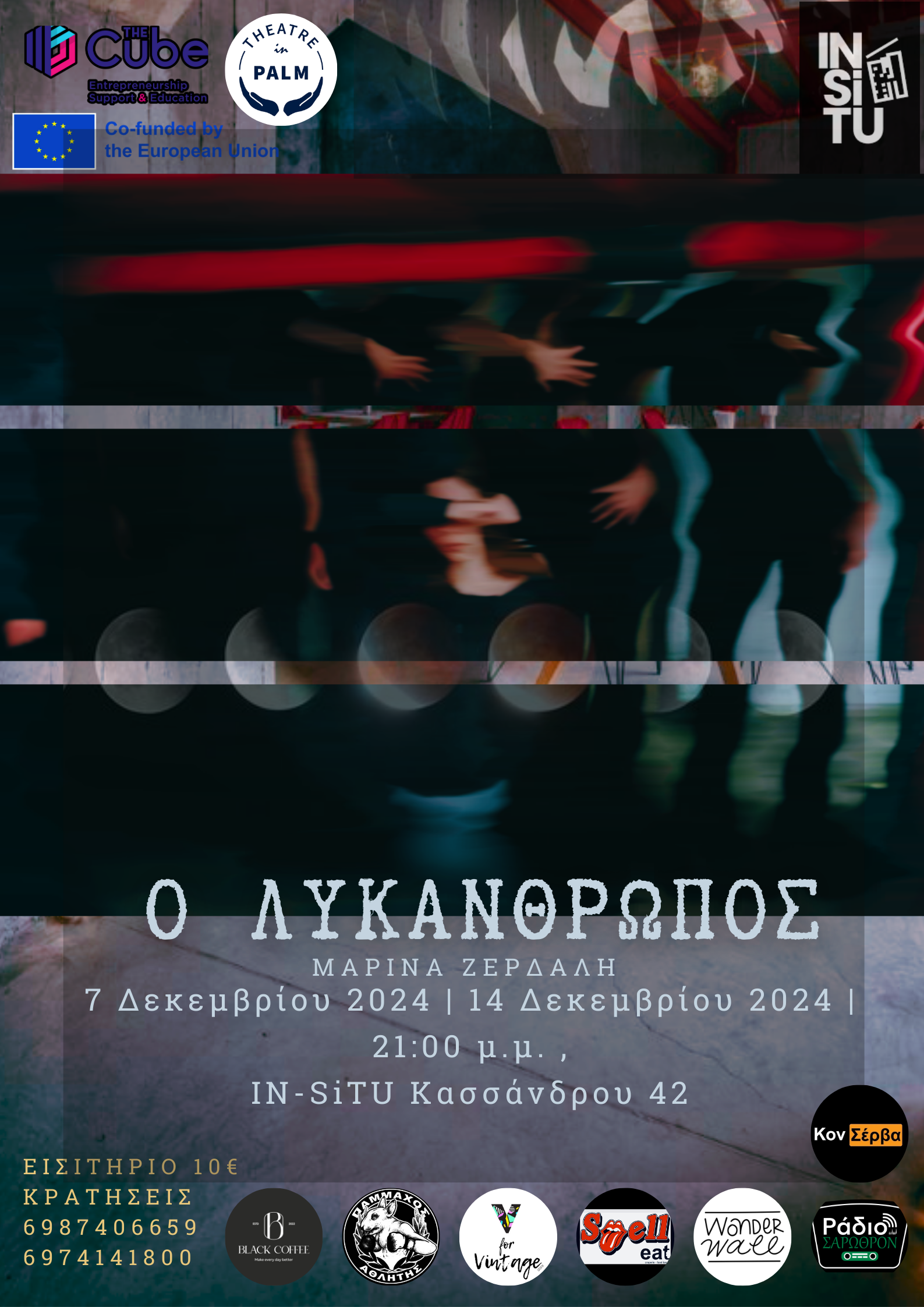“Werewolf” or in Greek “Ο ΛΥΚΑΝΘΡΩΠΟΣ” – A Theatrical Experience
A Confessional Room. A Voice: The Moon. Five Individuals in an Incubator…
Meet Amethyst, Moonstone, Topaz, Jasper, and Quartz.
A mission and a secret: How will humanity be saved from the Werewolf? And who is this Werewolf, anyway?
Why is Amethyst obsessed with words and in love with Moonstone?
Why does Quartz fixate on time and yearn for the Day of Luxury?
Can Topaz rise to power, and why is she terrified of frogs?
Why does Jasper seem indifferent to everything?
And what exactly is happening with Moonstone?
But beware—this theatrical performance answers none of these questions!
Instead, you’ll witness transformations and uncover the eternal struggle for dominance: words or actions? You’ll feel the tension of command, savor the warmth of the Embrace, and breathe in the fleeting relief of the Day of Luxury. Yet, freedom? That comes only when all turns to darkness.
As for your connection with the actors, it happens only in the Confessional Room. But do you dare confess your darkest thoughts?
A performance woven with symbolic riddles and lyrical dialogues, culminating in an ending that is not an ending.
Welcome to the Incubator, little and big fish alike. What will you transform into?
A PERFORMANCE AND SOCIAL QUESTIONS
“Werewolf” delves into profound societal themes, allowing the Werewolf to serve as a powerful symbol open to interpretation:
- If the Werewolf represents the environmental crisis, the play reflects on the loss of nature and freedom.
- If it symbolizes power, it transforms into a political statement on social inequality—rich versus poor, masters versus servants, commanders versus executors.
- If the Werewolf embodies war, whether external conflict or inner turmoil, the play becomes a hymn to peace and harmony.
- And, as all stories do, it touches lightly on love and human warmth, offering hope for the future.
Ultimately, “Werewolf” poses a dilemma: Do words or actions hold greater power in shaping society?
The answer lies in transformation—internal, societal, and external.
Are you ready for yours?
The Theatre Movement will be in Greek and is organised by CUBE.


